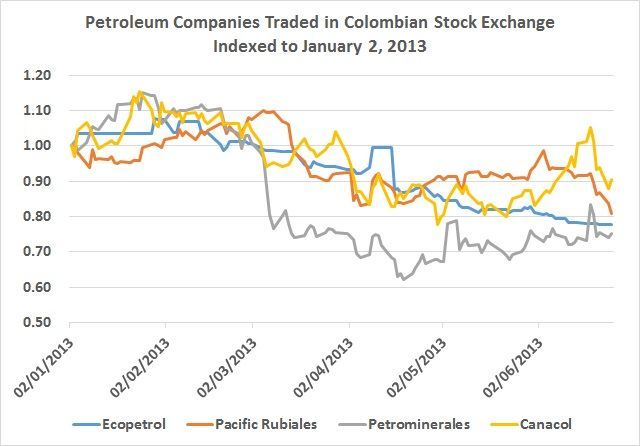We have not one but three interviews this month.
We calculate that Petroamerica is the 8th largest company by market capitalization listed on the TSX or TSX-V exchanges with operations in Colombia and the largest non-operating company of the Canadian group.

Castilla Crude Refining Economics
In the last two months heavy grades have remained strong in the Gulf of Mexico market. Margins have been positive, at least in the higher end Gulf of Mexico conversion refineries.
The USO in a statement says it categorically rejects the model of new contracts that Ecopetrol’s administration is proposing. The union calls it an attack against the workers, as it will allow contractor firms to lower headcount, decrease salaries and hierarchical ranks of works, increase the work load through “multifunctional” workers. This will expose workers to a higher risk of accidents, breaking the internal policy of Ecopetrol called “Work Safely, Clean Barrels”.
Ecopetrol, through its subsidiary Bioenergy, has land holdings that exceed the legal limits established by Colombian law.
Counts were down for the third week in a row to 23 below recent and long-term averages. This was a much lighter than normal week for non-armed forces reported/guerrilla-initiated incidents. Our 4-week Moving Average incident count was down to 31.3 incidents (down for the sixth straight week) but the 52 week average was up slightly again to 39.2 incidents per week.
Protests and blockades in Paz de Ariporo, one of several hotspots this week that have grabbed headlines, are now being lifted after community leaders and Bicentennial Pipeline officials signed an agreement that would improve the community’s roads.
The 10 demands and subsequent additions by the Farc last week made a big splash and Colombia’s major political figures left no doubt that these new demands, which greatly widened the agreed agenda, were not on the table for discussion.
Officials charged with managing Colombia’s sea commerce and resources met with oil companies performing offshore exploration to discuss regulations surrounding the activities.

The share price of Pacific Rubiales, Canacol and Petrominerales lead the Colombian Stock Market (BVC) with some of the most undervalued share prices, which local analysts say could present opportunities for investors despite the 11.9% drop in the stock’s index IGBC in 2013.